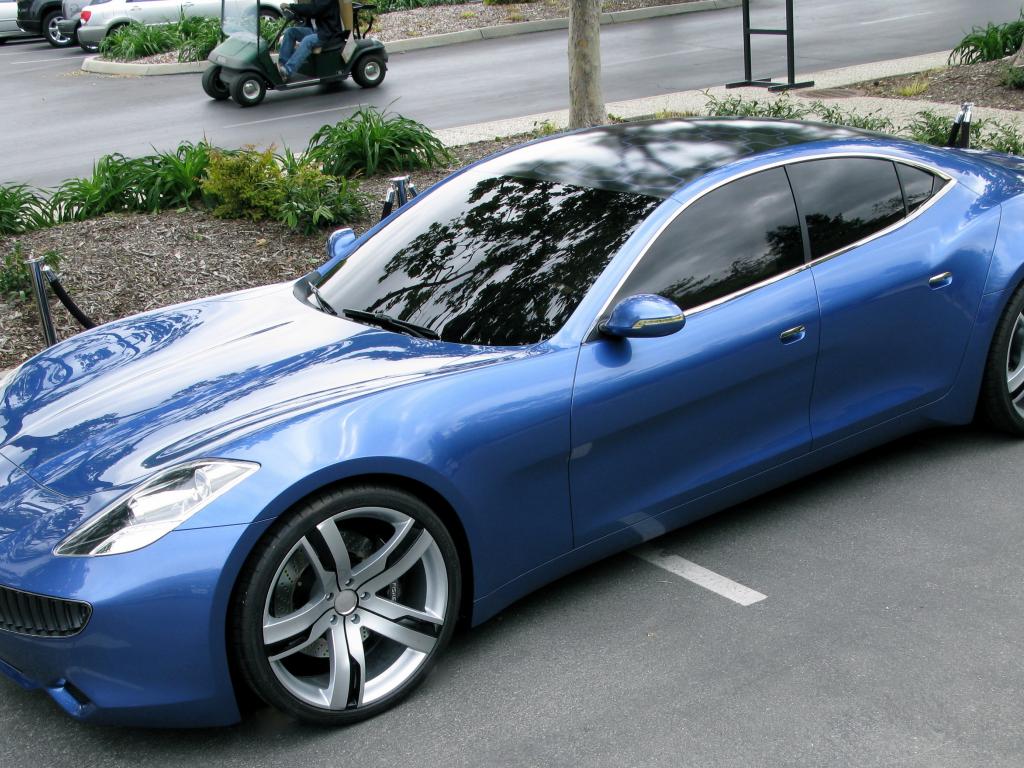Electric vehicle maker Fisker Inc announced Thursday it has completed a reverse merger with the blank check company Spartan Energy Acquisition Corp SPAQ 0.11%.
What Happened: Both companies will merge in a business combination to create a new entity whose Class A common stock will list on the New York Stock Exchange under the symbol “FSR.” Through the reverse merger, Fisker has gained access to $1 billion in cash inflows.
Spartan is funded by an affiliate of private equity giant Apollo Global Management Inc. APO 3.62%.
With the funding and strategic tie-ups in place, CEO and Chairman Henrik Fisker remarked, “ We can now fully turn our attention to developing and launching the revolutionary, all-electric Fisker Ocean into the heart of the midsize SUV market.”
Fisker is cashing in, Polestar needs money, and Carlos Ghosn’s case is still developing. All that and more in The Morning Shift for October 30, 2020.
(Irregular FYI: Some of the stories linked to below are behind paywalls. Pay for the news you value!)
1st Gear: Fisker
Fisker won’t be delivering its Ocean electric car until late 2022 at the earliest, but it’s going public anyway in the meantime. Fisker also is still not generating revenue, as Input Mag reported a few months ago, and its car is, yeah, some time away even if everything goes to plan. You can buy shares today! This column does not represent advice on buying stocks; please put your money into index funds.
Via Fisker’s press release:
Fisker Inc. (“Fisker”), a developer of the world’s most emotionally desirable, eco-friendly electric vehicles, announced today that it has completed its business combination (“Business Combination”) with Spartan Energy Acquisition Corp. (“Spartan”) (NYSE:SPAQ), a special purpose acquisition company sponsored by an affiliate of Apollo Global Management, Inc. (NYSE:APO). Spartan stockholders approved the business combination in a special meeting held on Oct. 28, 2020. On Oct. 30, 2020, the combined company’s Class A common stock and public warrants are expected to commence trading on the New York Stock Exchange (“NYSE”) under the ticker symbols “FSR” and “FSR WS,” respectively.
“All the external pieces are now in place to execute our unique, asset-light business strategy, with today’s funding and the strategic cooperation announced with Magna on Oct. 15,” commented Fisker Chairman and Chief Executive Officer, Henrik Fisker. “We can now fully turn our attention to developing and launching the revolutionary, all-electric Fisker Ocean into the heart of the midsize SUV market, expected to commence in Q4 2022. We appreciate the confidence from all our shareholders and intend to deliver on our stated goals.”
As a result of the completion of the transaction, Fisker expects to have in excess of $1.0 billion (net of transaction fees and expenses) of cash on the balance sheet and no funded debt. This amount is expected to fully fund Fisker operations and the development of the Fisker Ocean program through the planned start of production in Q4 2022.
I would try to explain why startups with no product or revenue are going public and raking in money on the stock market but after too much research I don’t get it either. Fisker Ocean will be priced at $37,499, to start. Will it challenge Tesla in the slightest bit? Who can say, as everything about Fisker at this point is extremely hypothetical.
2nd Gear: Polestar
Speaking of Tesla challengers, Volvo/Geely’s effort at that, the car company known as Polestar, needs more money. Polestar introduced the Polestar 1 back in 2017. That was a hybrid. Then Polestar introduced the Polestar 2, an all-electric Tesla Model 3 Performance fighter.
The Polestar 2 seems nice if not quite matching the Model 3 Performance in terms of value. Anyway, Polestar is now on the hunt for cash.
From Automotive News:
The automaker is in advanced talks with investors to raise $800 million to $900 million, according to Reuters, while Bloomberg reported that the figure is at least $500 million. Both are attributing the information to people familiar with the matter.
A Europe-based Polestar spokesman reached by Automotive News Europe said the company doesn’t comment on market speculation.
Polestar’s first effort to raise funds outside of its parent company comes as the global auto industry continues investing in electric technologies after EV makers from Tesla to Nio report sustained sales growth.
Polestar is seeking a valuation of about $6 billion, Bloomberg was told by one of the people, who requested anonymity because the discussions are private. A funding round hasn’t been finalized, and terms could still change, the source said.
One of Reuters’ sources said the investment would put Polestar’s valuation at more than $5 billion, adding that the Sweden-based company is in final funding talks with Chinese investors including Beijing E-Town International Investment & Development.
3rd Gear: Carlos Ghosn
The saga of Carlos Ghosn will undoubtedly result in movies, books, TV series, possibly even comic strips. The latest twist is that a judge has ruled that two alleged accomplices of Ghosn can’t be extradited to Japan, for now.
From the Financial Times:
A US federal judge has temporarily halted the extradition of two US citizens accused of orchestrating Carlos Ghosn’s daring escape from Japan last year, shortly after the US government approved their removal.
Lawyers for Michael Taylor, a former Green Beret, and his son Peter, said in a court filing on Thursday they had been informed by Japanese media that the men were set to be removed from the US within hours.
The US state department had approved the extradition on Tuesday and informed lawyers for the men the following day, according to the filing, which said they were due to be sent to Japan on a 1pm Thursday flight.
A federal judge in Boston, Indira Talwani, issued an emergency order just 17 minutes before that time, halting their removal until she could fully review the request.
The developments were the latest twist in a saga centred on Mr Ghosn, the former Nissan chief executive, which has stretched across multiple countries since his sudden downfall two years ago.
4th Gear: Europe
Autoblog says that electrified car registrations are outnumbering diesel car registrations there for the first time, in what is the extended fallout from Dieselgate coupled with European governments offering generous incentives to go electric.
New diesel registrations have been declining across Europe since 2012, when they represented more than 50% of the new-car market according to a study by JATO Dynamics, which has been tracking automotive sales trends for more than three decades.
“The shift from ICEs to EVs is finally taking place. Although this is largely down to government policies and incentives, consumers are also now ready to adopt these new technologies,” said JATO analyst Felipe Munoz.
“Demand for gasoline and diesel cars shows double-digit drops compared to September 2019 while the volume of EVs increased by 139% to 327,800 units — a record in terms of both volume and market share. This is the first time that EVs have broken the 300,000 units monthly mark, and only the second time that they have counted for more than 20% of registrations,” JATO’s report said.
“Electrified,” of course, encapsulates not just all-electric vehicles but also hybrid ones, so let’s not get too excited.
5th Gear: Packard Plant Once More At Risk
The old Packard Plant in Detroit has a long and weird history but its current owner, a gentleman named Fernando Palazuelo, now plans to destroy it instead of renovating.
From the Detroit Free Press:
The Peru-based developer, who bought the sprawling 40-acre site seven years ago at the Wayne County Treasurer tax foreclosure auction, recently listed the 3.2 million-square-foot property with a commercial real estate firm and is seeking industrial buyers or tenants.
Larry Emmons, senior managing director for Newmark, formerly known as Newmark Knight Frank, said Thursday that Palazuelo would be ready to demolish big sections of the empty plant once one or more tenants are found.
The demolition would be done to make way for “a modern, 21st-Century industrial building.”
Previously, Palazuelo aimed to gradually redevelop sections of the plant for an eclectic mix of cultural and commercial uses, including art galleries, event space, offices, even a techno club in collaboration with famous German nightclub owner Dimitri Hegemann.
He held a 2017 groundbreaking event and completed some rehab work to the Packard administrative building, 1580 E. Grand Blvd., but no one has yet to move in.
Palazuelo is now dropping all of those earlier plans to focus on the new demolish-and-build strategy, Emmons said.






